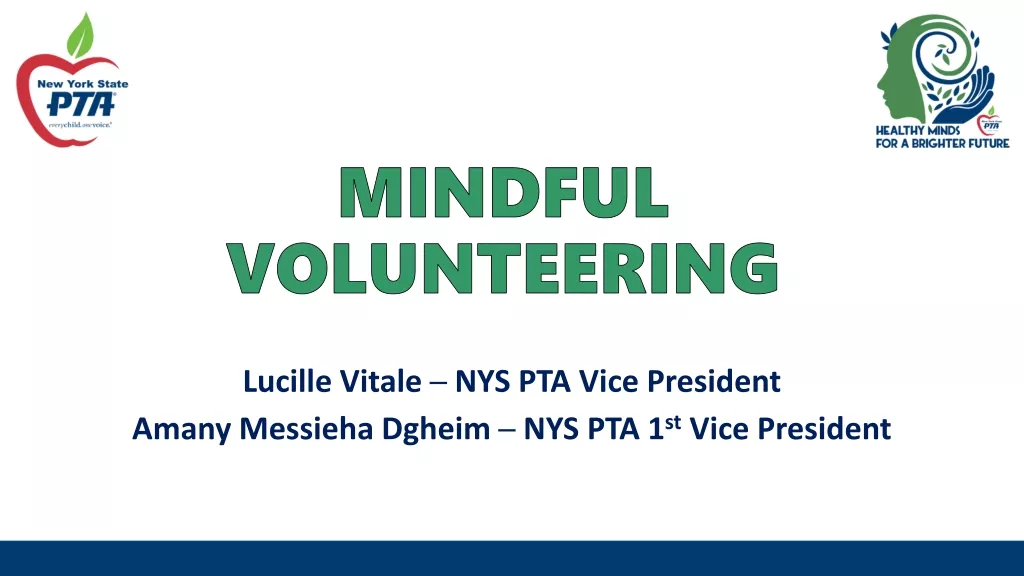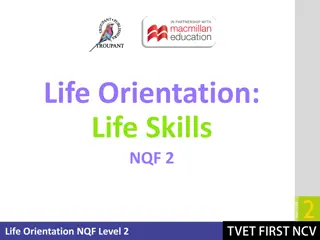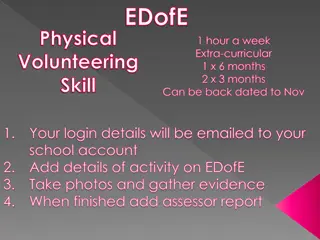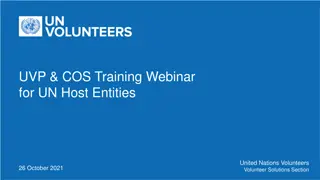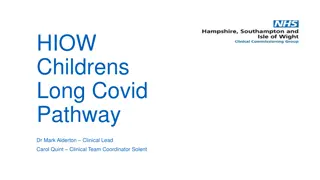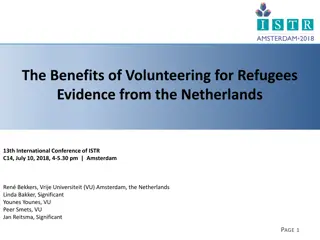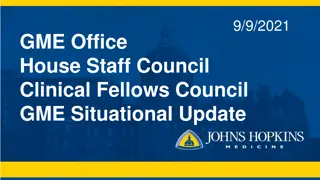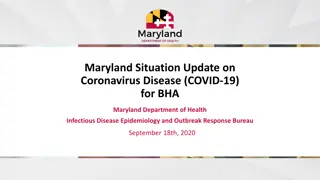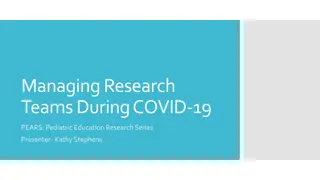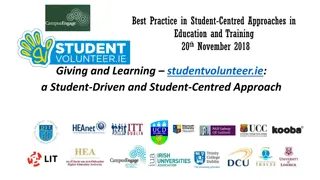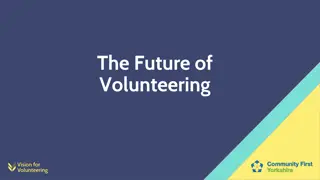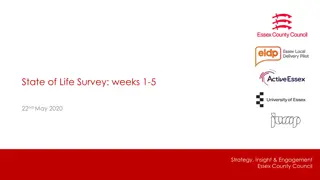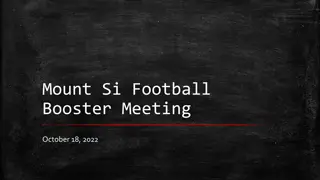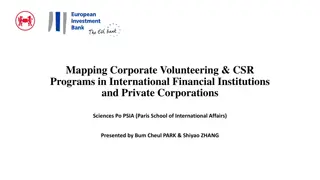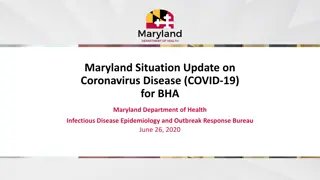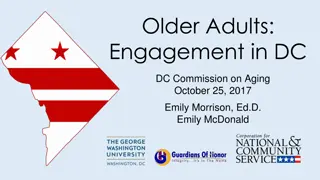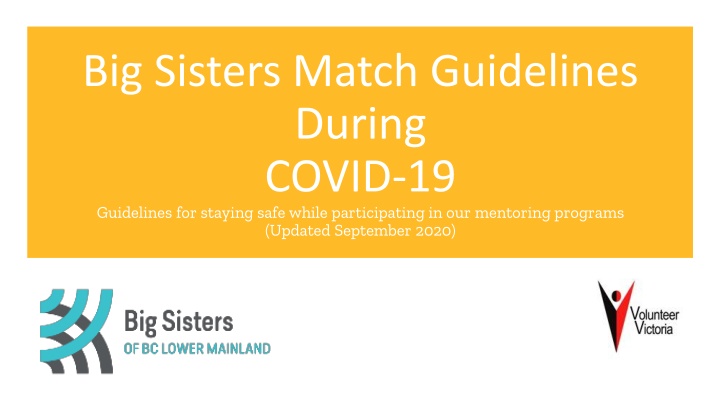
Big Sisters Match Guidelines: Mentoring Safety During COVID-19
"Learn how Big Sisters of BC Lower Mainland is adapting mentoring programs during the COVID-19 pandemic to ensure the safety of mentors, mentees, and staff. Get insights on safe match activities, guidelines for interactions, and considerations for in-person hangouts. Stay informed and follow current health protocols to navigate mentoring in these challenging times."
Download Presentation

Please find below an Image/Link to download the presentation.
The content on the website is provided AS IS for your information and personal use only. It may not be sold, licensed, or shared on other websites without obtaining consent from the author. If you encounter any issues during the download, it is possible that the publisher has removed the file from their server.
You are allowed to download the files provided on this website for personal or commercial use, subject to the condition that they are used lawfully. All files are the property of their respective owners.
The content on the website is provided AS IS for your information and personal use only. It may not be sold, licensed, or shared on other websites without obtaining consent from the author.
E N D
Presentation Transcript
Big Sisters Match Guidelines During COVID-19 Guidelines for staying safe while participating in our mentoring programs (Updated September 2020)
About this Training Guide This guide is intended to help mentors, mentees and staff with Big Sisters of BC Lower Mainland navigate the world of mentoring during a public health crisis such as the COVID-19 pandemic. Mentoring at this point in time, and for the foreseeable future, means doing things differently. While our mentors and mentees will continue to build developmental relationships together, some match activities that mentors and mentees would typically select, or activities that mentors and mentees would do together to help the community, might have to adapt to meet current public health safety standards. All recommendations made in this training guide are based upon current protocols provided by the Provincial Health Office, Government of Canada, and World Health Organization, as well as best-practices in volunteering from Volunteer Canada and Volunteer Victoria. These recommendations are subject to change as new information emerges. Directives announced by the Provincial Health Officer and Government of Canada officials should always take precedence over this guide: Provincial Health Office: https://www2.gov.bc.ca/gov/content/health/about-bc-s-health-care-system/office-of-the-provincial-health- officer/current-health-topics/covid-19-novel-coronavirus Government of Canada: https://www.canada.ca/en/public-health/services/diseases/coronavirus-disease-covid-19.html World Health Organization: https://www.who.int/emergencies/diseases/novel-coronavirus-2019
What to consider prior to resuming hang outs at each others homes: If both parties are comfortable expanding their bubbles to include hang outs at each others homes please keep in mind: That your bubble will now include others that are in contact with your Big/Little That being indoors increases your risk of contracting and spreading COVID-19 That you should still keep your distance and wear a mask when appropriate That you should still refrain from sharing food/drinks and bring snacks Taking a self assessment questionnaire immediately before your hang out and encourage your Big/Little to do the same https://bc.thrive.health/covid19/en Update to Guidelines
What Type of Match Activities are Safe? LOW CONTACT ACTIVITIES (limited/slight risk level) May be allowed *Follow Public Health office rules *Check with caseworker and mentee s parent/guardian before doing this type of activity NO CONTACT ACTIVITIES (zero risk level) HIGH CONTACT ACTIVITIES (extreme/considerable risk level) Not Currently Allowed Activity Allowed Face-to-face contact between mentors and mentees where time together occurs inside public places or around larger groups. Face-to-face contact between mentors and mentees occurs outdoors using safe physical-distancing or at each others homes wearing masks when needed -No face-to-face contact between mentors and mentees (or mentees and mentors volunteering together to help other people) - activities take place alone or virtually Bike rides/Walks/hikes Hanging out at each others homes Picnics Phone calls Texts Virtual meetings Sharing food Overnights Public events/indoor places
ACCESS How Bigs and Littles visit will need to adapt during any COVID-19 outbreaks. They may be switching between face-to-face and virtual meetings to keep consistently connecting each week, depending on their program and the permission granted by all match participants. Everyone has different levels of access to technology, so use the method of communication that works best for your match Zoom, Face-time, Google hang-outs, email, text, telephone or old- fashioned paper and pen. Just remember to talk to each other about the virtual platforms or online tools that you feel comfortable using and update your caseworker during your next match monitoring check-in. What might have changed while mentoring during COVID-19? Privacy You may now have video access into each other s homes or private spaces. It is important to respect each other s privacy. Also, let each other know if there are other people in the room during your match meetings and agree that this is ok with both of you before you continue. You may decide it is better to find another space and/or time to connect.
What to consider prior to resuming in person meetings: There are important factors to consider when making the decision to resume in person meetings between your child and their mentor, including the Mentor and Mentee s level of risk and the level of risk of other members of your family. Determining Your Risk Tolerance There are certain individuals who are at risk of a more severe illness as a result of COVID-19, including: Individuals over 60 years of age Individuals with a compromised immune system or underlying chronic medical conditions It is important to properly inform yourself and others of these risks, assess your own risk-tolerance, and think through extra precautions you may wish to take over the coming months. It is okay if you are not comfortable to resume in person meetings at this time. Please let your caseworker know how you feel.
BE PREPARED: RESUMING IN PERSON MATCH ACTIVITIES Prepare Minimize Maintain Resume Adapted from contributions made by Volunteer Canada, Volunteer Ireland, Volunteer Israel, BC Health) Wash your hands before and after EVERY match activity. When you get home, wash your hands, wash your clothes, and wash your hands again. Only you and your mentee ride in your vehicle together. Wear your mask on public transit Be prepared for more changes in the months ahead. Keep doing activities and stay connected. Do not call at each other's homes unannounced. Let people know to expect you. Sanitize everything you bring to/take from your match activities. Hang out at each others homes while following safety guidelines Bring your own food/water. Do not share food/plates/cutlery. Avoid physical contact - stay 6 ft apart. No high fives or hugs. Mentors must clean their vehicle before and after each match meeting. Have hand sanitizer, tissues, masks and gloves ready.
Virtual Meetings - The Good Stuff You might choose to continue no contact or virtual meetings at this time. Talk about future plans. Help think of fun ways to connect in the virtual world: Take virtual tours through galleries, museums, or parks Wear costumes Create your own cheer or chant Host a virtual home-based scavenger hunt give yourself a time- limit Sing together Teach each other dance moves Draw together using an online white-board Practice your paired reading or writing activities Pick a great movie/ book to watch/read and set a time to compare notes Use software to share your screen let them see what you're doing online Agree to a schedule for calls/connections. When people feel a loss of control in times such as these, a sense of routine offers consistency and may reduce anxiety. Mentors should always end the call by scheduling the next one. Remember: it s ok to be worried but there are lots of positive things we can all do to keep everyone safe
WHAT THE NEW NORMAL MEANS FOR YOU? BC s progress in the fight against COVID-10 is a direct result of the sacrifices and decisions that we have all made. To continue to protect seniors and at risk people and ensure that our health care system can respond to this dangerous virus, means that we all have to keep doing our part at home, in the community and at work. Stay at home and keep a safe distance from family when you have cold or flu symptoms (coughing, sneezing, runny nose, sore throat, fatigue) BC S RESTART PLAN (www.gov.bc.ca) last updated May 29/20 No handshaking or hugs outside of your family Practice good hygiene Regular hand washing Avoid touching your face Covering coughs and sneezes Disinfect frequently touched surfaces Keep physical distancing, as much as possible when in the community and where not possible, considering using a non- medical mask or face covering.
Importance of Self-Monitoring: Even if gatherings are allowed and social distancing rules are maintained, it might not be safe for match particpants to see each other face-to-face. You need to ask yourself every time there is a match activity: Is anyone feeling ill? If the answer is YES for either of you DO NOT MEET IN PERSON Has anyone had COVID-19 symptoms in the last 14 days? If the answer is YES for either or you DO NOT MEET IN PERSON Did anyone have direct contact with someone in their households who has been unwell in the last 14 days? If the answer is YES for either of you DO NOT MEET IN PERSON Community safety guidelines are constantly changing as more information becomes available. As a mentor, it is your responsibility to check and understand those guidelines as well as those established by Big Sisters.
Frequently Asked Questions Can we share items? It is best that if they are doing an activity that requires an item to be touched with their hands (ie. basketball) that each of them have their own item Can we include others during our match activities? Keep match activities to just match participants, even if they are meeting online or through a virtual platform. Should we wear masks? A non-medical cloth mask collects droplets caused by sneezing, coughing, laughing, etc. Wearing a mask should be combined with other important preventative measures such as frequent hand washing and physical distancing. Using only a mask is not enough to prevent the spread of COVID-19. Should my mentor and I be going to public events? Always follow the instructions set out by BC s Provincial Health Officer and/or Government of Canada officials. If they say it s ok to be outside, to meet with others who are not household members, and to attend public events, then go ahead. As long as you feel comfortable and it's an agency approved activity, then it's ok to it.
Self Self- -Monitoring Monitoring Self Self- -Isolation Isolation Isolation Isolation SELF-MONITOR means to: monitor yourself for 14 days for one or more symptoms of COVID-19. Go about your day but avoid crowded places and increase your personal space from others, whenever possible You have: no symptoms AND a history of possible exposure to the novel coronavirus that causes COVID-19, in the last 14 days You need to self-monitor if: you have reason to believe you have been exposed to a person with COVID-19 OR you are in close contact with older adults or medically vulnerable people OR you have been advised to self- monitor for any other reason by your Public Health Authority SELF-ISOLATE means to: stay at home and monitor yourself for symptoms, even if mild, for 14 days; avoid contact with other people to help prevent the spread of disease in your home and in your community in the event you become symptomatic. You have: no symptoms AND a history of possible exposure to the novel coronavirus due to travel outside of Canada or close contact with a person diagnosed with COVID-19 You need to self-isolate if: you have travelled outside of Canada within the last 14 days OR your Public Health Authority has identified you as a close contact of someone diagnosed with COVID-19 To be ISOLATED means to: stay at home until your Public Health Authority advises you that you are no longer at risk of spreading the virus to others; and avoid contact with other people to help prevent the spread of disease in your home and in your community, particularly people at high risk of severe illness outcomes such as older adults or medically vulnerable people You have: symptoms, even if mild AND you have been diagnosed with COVID-19 or are waiting for the results of a lab test for COVID-19 You need to isolate if: you have been diagnosed with COVID-19 OR you are waiting to hear the results of a laboratory test for COVID-19 OR you have been advised to isolate at home for any other reason by your Public Health Authority KNOW THE DIFFERENCE: For more information about COVID-19 definitions, contact the Public Health Agency of Canada at 1-833-784-4397 or visit canada.ca/coronavirus
We gratefully acknowledge that our mentors, mentees and staff live, learn and work on the unceded territories of the Tsleil-Watuth, Squamish, Kwantlen, Matsqui, Tsawwassen, Katzie, and Musqueam First Nations. Thanks to all the Big Sisters of BC Lower Mainland volunteers, families and supporters who make it possible to keep supporting children and youth during this difficult time. Thanks to Volunteer Victoria for allowing us to adapt their COVID-19 Volunteer Training. Volunteer Victoria s mission is to inspire everyone to volunteer. They raise new generations of volunteers; provide training and expertise to volunteer-led groups and organizations; and create opportunities to make a difference. T: 250-386-2269 | E: volvic@volunteervictoria.bc.ca | W: volunteervictoria.bc.ca Acknowledgement and Gratitude
Talk to your caseworker if you have any questions or concerns We are all learning in this next normal If you or your family needs any extra support during this time please let us know We re here for you!

